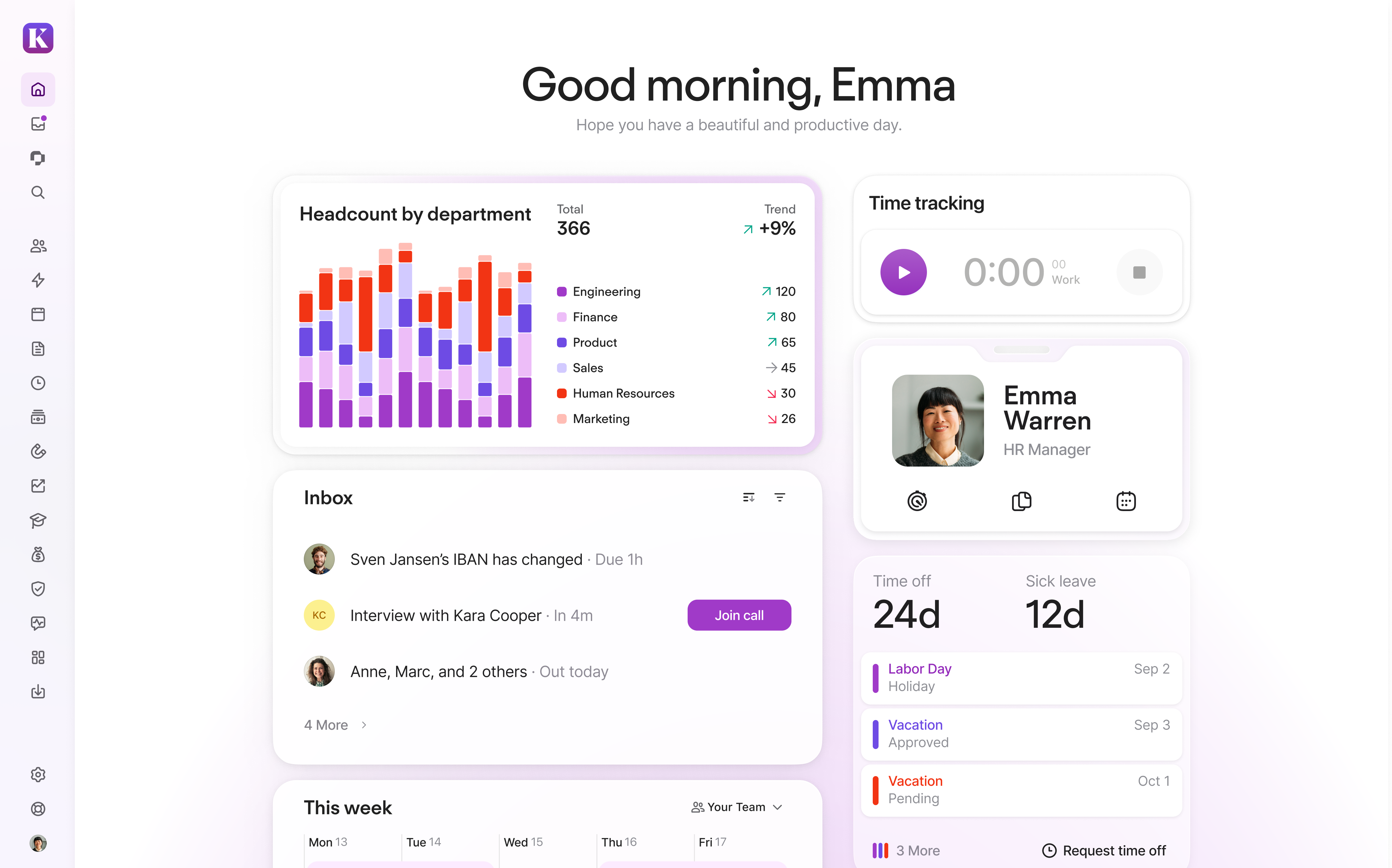What is a leading HR system and why?
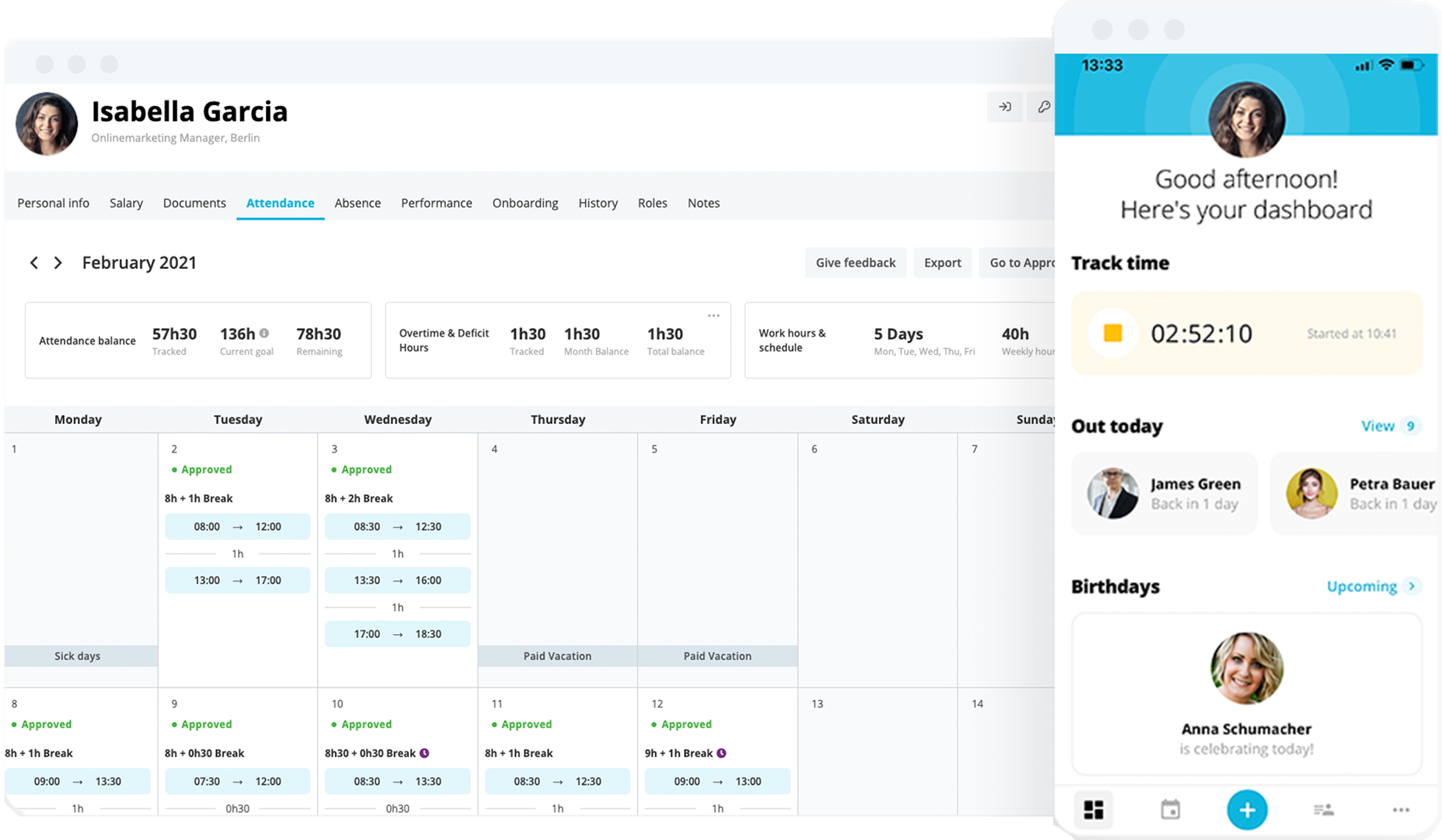
When implemented correctly, HR systems can manage the full employee lifecycle – from hiring and onboarding to development and retention. These HR system solutions improve strategic decision-making and help HR teams contribute at a higher level.
In this article, we break down what an HR system is, how they can help, and what you should expect from the top platforms.
Invest in a new HR system with our expert buying guide. Download it today for free.
Contents
- 1What is an HR system?
- 2What are integrated HR systems?
- 3Automating your HR Processes? We can help
- 4How HR systems work?
- 5How to implement a new HR system
- 6Run these HR processes with your HR system
- 7Do HR systems offer workflow automation?
- 8Do HR systems offer workflow automation?
- 9How much does an HR system cost?
- 10How do you choose an HR system?
What is an HR system?
An HR system is a software that helps manage employee data and the running of core HR processes. This is often referred to as a human resources management system (HRMS) or a human resources information system (HRIS).
Leading organisations use HR systems to cover every stage of the employee lifecycle, including recruiting, onboarding, performance tracking, and development.
By automating routine tasks, an HR system frees up time for strategic initiatives. Not only for employees, but for HR teams who can use that time to focus on high-impact projects like:
What are the four different types of HR systems?
There are four primary types of HR systems:
1. HRIS (Human Resource Information System) | Focuses on core HR functions, policies and procedures. |
2. HCM System(Human Capital Management System) | A holistic combination of an HRIS and HCM with added features like performance tracking, learning, and succession planning. |
3. HCM (Human Capital Management) | A comprehensive version of HRIS with talent management and analytics capabilities. |
4. HRMS (Human Resource Management System) | Automates tasks that may include payroll and performance management. |
Leading HR systems, including Personio’s platform, will combine industry-leading integrations with your team's top tools, bringing together processes like your HR and payroll systems.
Ultimately, any system that you choose should help manage your day-to-day HR processes, while offering additional functionality that helps take your people-focused work to the next level. That should be non-negotiable.
What are integrated HR systems?
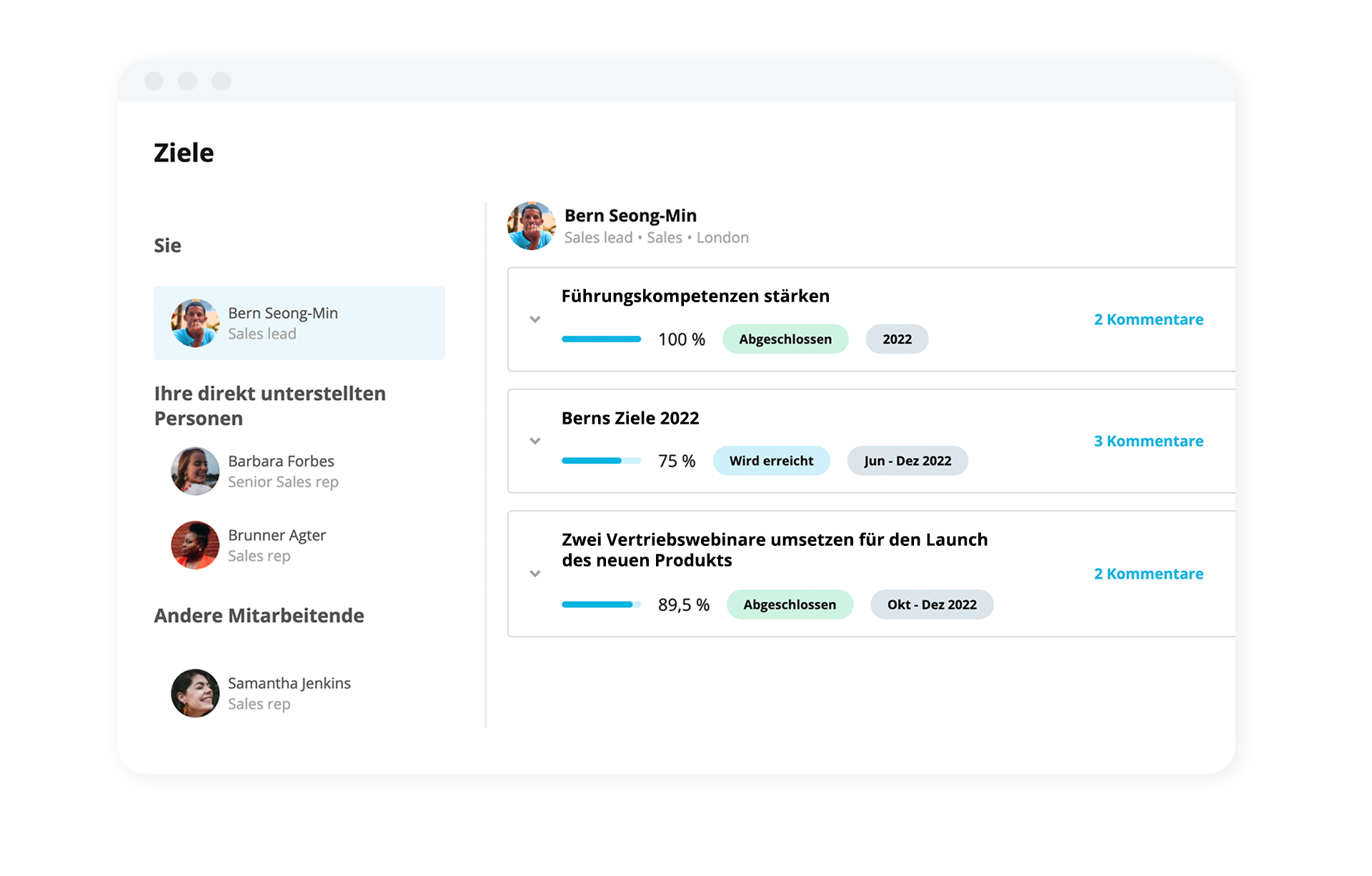
Integrated HR systems combine all your core HR functions – like recruitment, onboarding, employee data, and time tracking – into one connected platform. These systems also automate routine tasks, helping your HR team work more efficiently and accurately.
Instead of juggling spreadsheets, emails, and disconnected tools, your team can manage people processes in a streamlined, centralised way. Here are some of the key benefits of adopting an integrated HR system.
Time savings through automation – Save your team time by managing and automating tasks like contract management, approvals, and data entry.
Employee self-service and engagement – Empower employees to manage their personal data, time off, and documents (through employee self-service)
Integrated tasks and tools – Seamlessly connect with tools like Slack or Google Calendar for smooth workflows for everyone involved.
Airtight data security – Ensure compliance with GDPR and strict data protection policies, through secure digital employee records.
Data-driven decision-making – Generate quick, accurate HR reports to support people analytics and strategic planning.
Scaling recruitment – Simplify hiring processes and scale teams efficiently with streamlined candidate pipelines.
Never losing paperwork or approvals – Centralise workflows and ensure documented oversight and approvals from managers and executives.
Automating your HR Processes? We can help
Automating Your HR Processes? We Can Help
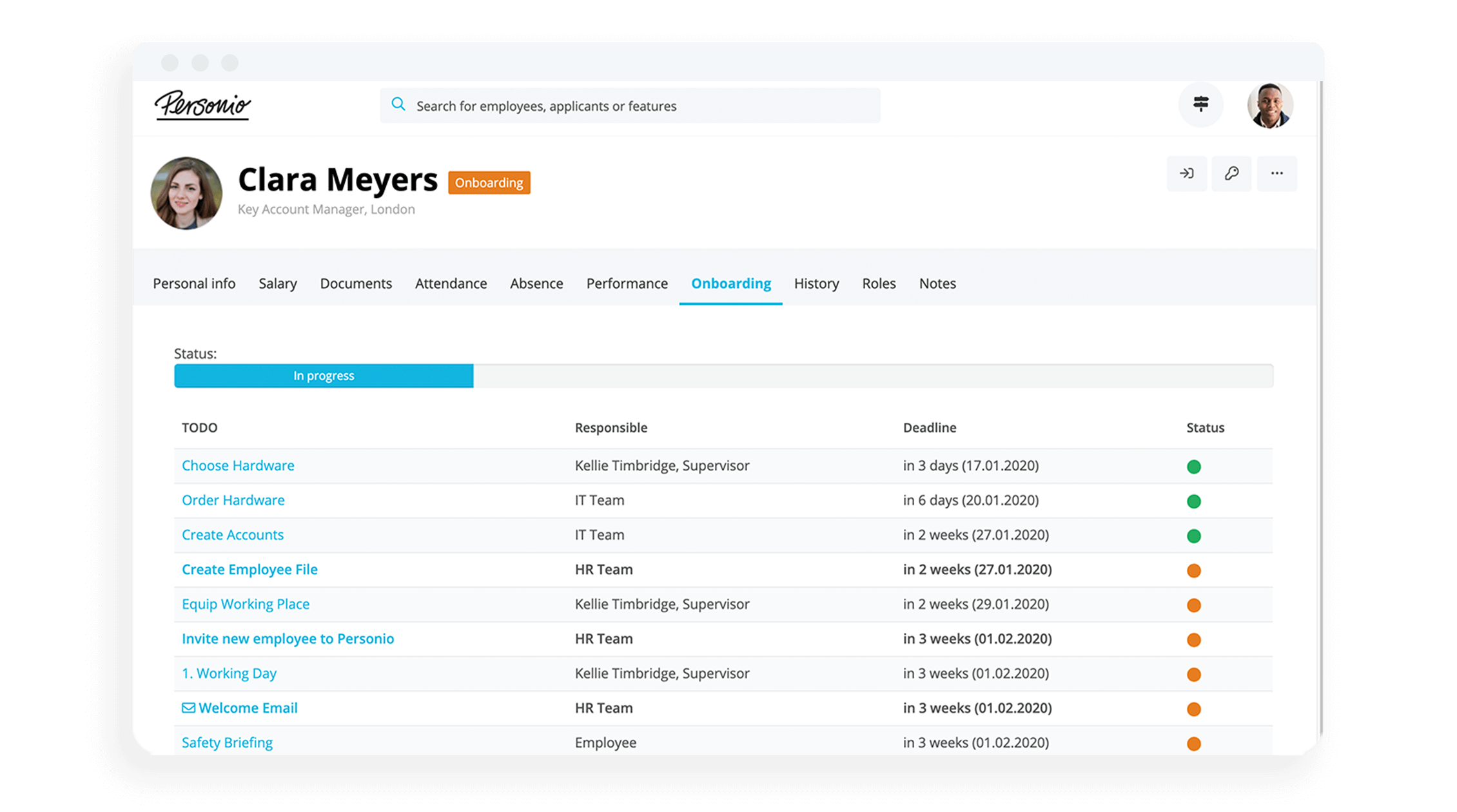
Run your HR processes like clockwork, from onboarding to performance and beyond, with Personio today.
Book A Demo TodayRun your HR processes like clockwork, from onboarding to performance and beyond, with Personio today.
Book a demoHow HR systems work?
It depends on the company. For some, an HR system is a jumbled mix of spreadsheets, emails and cumbersome processes. For others, it’s a centralised, all-in-one HR platform that streamlines operations.
For many SMEs and their HR teams, the reality leans more towards the former. Their system often amounts to an ad hoc collection of documents, employee data and scattered information across various tools and channels.
How to implement a new HR system
Follow these six key steps to ensure a smooth and successful HR system rollout:
Set clear goals – Define your objectives, timelines, stakeholders, and what success looks like from the start.
Get the system ready – Configure the system to match your company’s structure, workflows, and compliance requirements.
Train your people – Prepare HR teams, managers, and employees with training and clear documentation.
Test before you launch – Run tests to check workflows, data accuracy, and integrations before going live.
Launch – Launch the system in phrases or company-wide, depending on your readiness.
Monitoring – Track usage, collect feedback, and adjust processes to drive long-term adoption and value.
Do startups need an HR system?
Startups often need HR systems the most, especially when it comes to establishing a strong HR foundation. For startups whose CEO doubles as the Head of People, a fully functioning HR system can be a huge benefit.
This is especially true as you grow. Startups often prize their culture above all else, and having an HR system for startups that delivers a consistent onboarding experience, for example, can ensure that your culture doesn’t fall through the cracks.
Alternatively, let’s say you are focusing on scaling and increasing the quality of your leadership bench. An HR system that focuses on developing leaders, or even sourcing new ones, can ensure that you are maintaining a high degree of quality.
Run these HR processes with your HR system
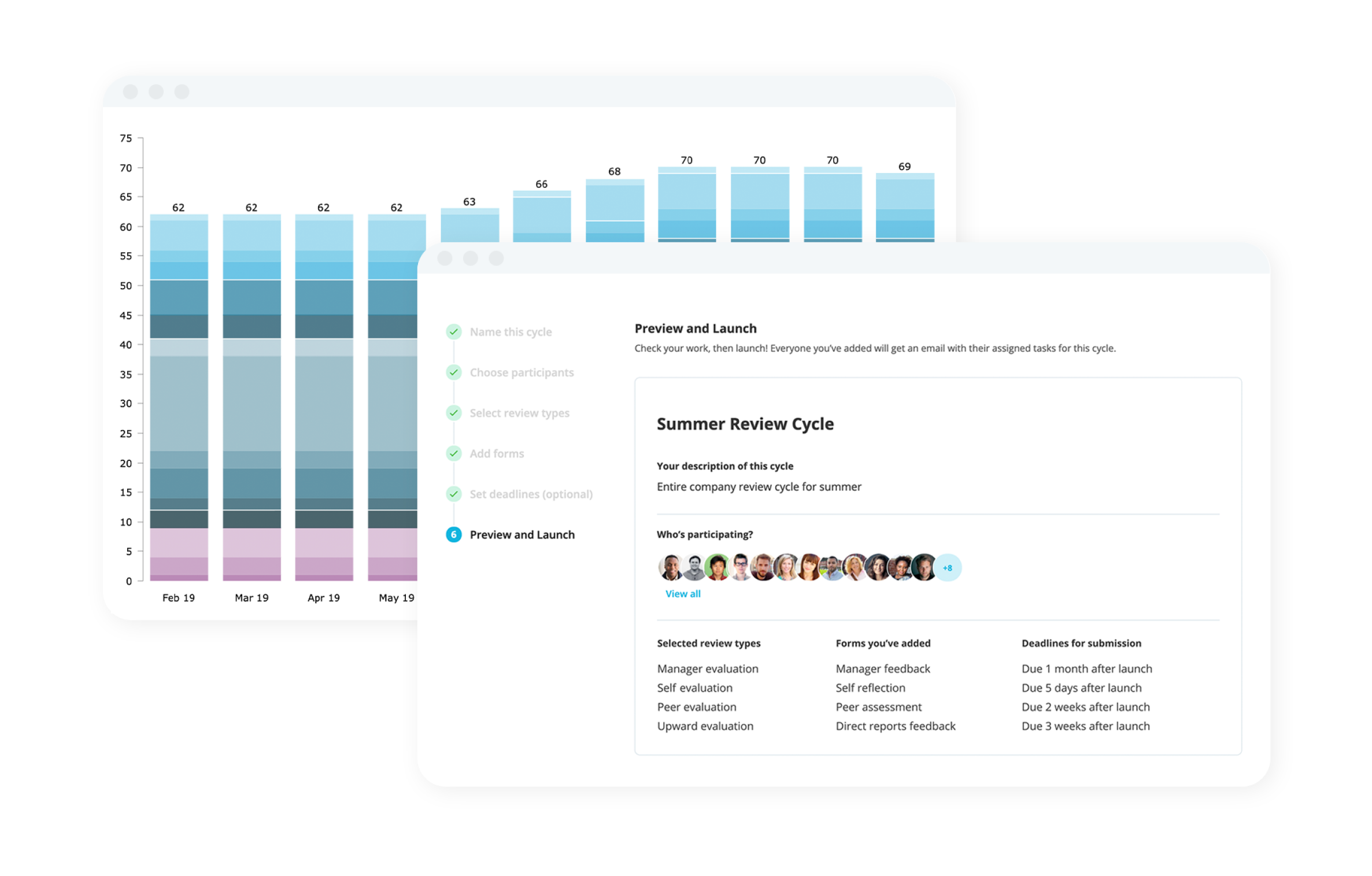
HR systems can automate and streamline a host of HR processes - from recruitment to reporting. Here are some of the most significant:
Applicant Sourcing – Finding top candidates across multiple channels.
Applicant Tracking – Ensuring a smooth recruiting process interview by interview.
Onboarding – Designing and implementing a great start for every employee.
Data Management – Managing data in a clear and compliant fashion.
Attendance Tracking – Making the process of tracking attendance easy.
Absence Management – Documenting leave and communicating it across your organisation.
Performance & Training – Developing potential into top performance.
HR Reporting – Analysis and reports that are always accurate.
Which processes should you focus on first?
Your HR function needs to be able to walk before it can run. For that reason, it helps to first focus on the foundational processes. An HR system should help lay the foundation for great HR work to happen, so you can build out your function from there.
Do HR systems offer workflow automation?
Automation is a key benefit of modern HR systems. It helps to reduce manual work and improve accuracy across your HR operations. Learn more about how HR workflow automation can transform your team.
Do HR systems offer workflow automation?
Enabling automation is a critical part of the industry's best HR systems. They help HR teams run tasks almost entirely on their own. This takes hours and hours of previously-manual work and gives it back to teams who can focus on bigger things.
For all of that to work, you need an all-in-one, flexible and user-friendly solution that not only can stand on its own, but offers integrations that pull together information across your organisation’s tools and helps introduce HR workflow automation across the board.
How much does an HR system cost?
That depends on a few key criteria, most commonly:
The size of your company and how many employees you have
The kind of plan you want, and which features matter most to you
If you need any add-ons to make your HR work even easier
Our team at Personio has developed twoplans – Core and Core Pro – to meet the needs of modern, growing businesses.
You can read more about this topic in our HR software pricing guide.
How do you choose an HR system?
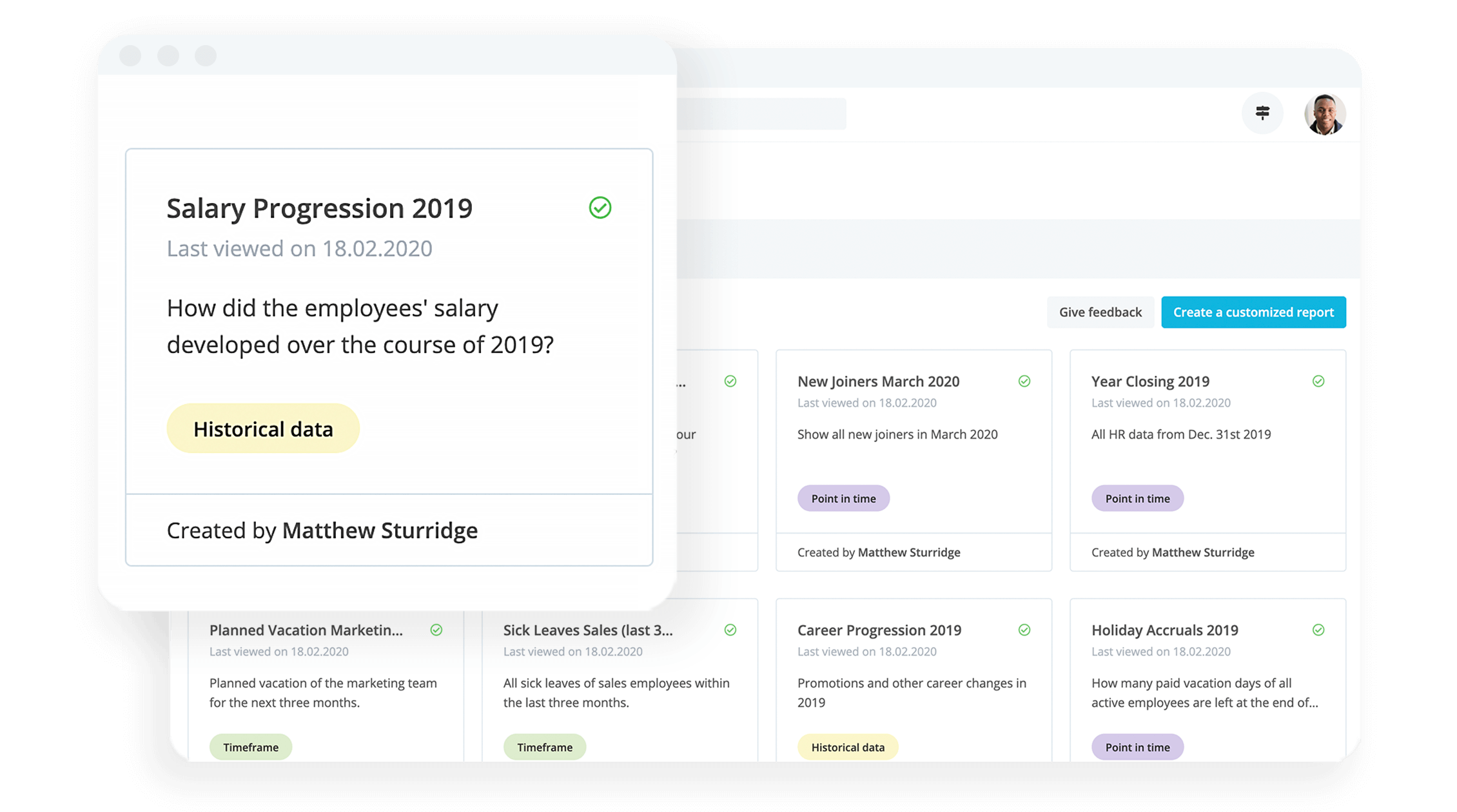
Choosing an HR system is no easy task. First, you need to know what you want. For that reason, putting together your own unique list of requirements is often a great place to start.
That said, we can offer some recommendations for what you may want to prioritise, especially when it comes to laying a great foundation. The following HR processes can have a multiplier effect on your organisational effectiveness:
Feature | Why you need it |
|---|---|
Employee Self Service | Employees can add and change their information without HR needing to do all the work. |
Applicant Tracking | No matter your growth plans, an HR system can streamline hiring to help scale your business. |
Absence Management | Simplifies requesting, approving and tracking holidays for HR teams. Bonus points if it integrates with your in-organisation messaging platforms. |
Digital Employee Files | Centralises digital documentation so it’s easier to manage, make changes, and is 100% compliant with local laws and regulations. |
Onboarding | Helps to engage new hires from the beginning by leveraging onboarding as an organisational strength, not a weakness. |
These are only some initial considerations to help you get started and understand what your HR function truly needs. But we consider them non-negotiable things that every truly great HR department has in their system.
Personio: The Intelligent HR Platform
WATCH: Get to know Personio in one minute

We need your consent to load this service!
This content is not permitted to load due to trackers that are not disclosed to the visitor.
Personio is an all-in-one HR software designed for every stage of the employee life cycle.
Using Personio, you can manage all your most important HR processes from one place. Recruit, manage, develop and pay your employees from one centralised HRIS.
For HR professionals, you can unlock new levels of productivity and influence. Become the HR business partner that your business needs by getting back time for what matters: your people.
For line managers, Personio seamlessly builds automated performance cycles, tracks holidays, and keeps employee information up to date (and in a compliant fashion).
For employees, no more fussing with cumbersome tools and processes. Employees can request days off, change their information and keep track of goals and more. All from one place.
Speak with an expert today about your HR needs and how Personio can meet them. Or give Personio a spin for yourself by starting your very own free trial right now. It’s all yours for 14 days.
